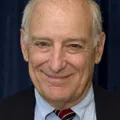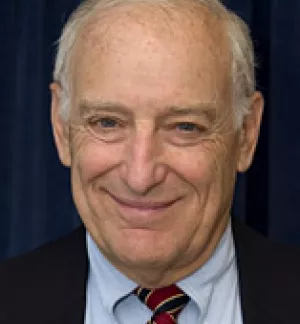HAITI'S PEACEFUL development depends on President Jean-Bertrand Aristide's rapid resignation, as the broad-based but hardly united opposition demands. However, since Andre Apaid, Evans Paul, Guy Philippe, or Louis-Jodel Chamblain, all leaders of opposition factions, are not capable of reuniting and leading the country today, forces of international order need to take charge. When the United States restored Aristide to power in 1994, it began helpfully to reintroduce democratic practices and rebuild Haiti's social and physical infrastructure. USSpecial Forces and Green Berets constructed rural schools and jump-started local economies. Then, because of the baying of a Republican-controlled House of Representatives, the United States, UN, and Organization of American States assistance teams gradually withdrew, leaving the new national police force partially trained, the national economy faltering, and the judiciary subservient to the executive. Corruption and narcotrafficking continued to flourish.
Ousting Aristide will accomplish little unless he is succeeded by an interim local coalition strongly supported and tutored by a robust international retraining mission. Preferably, the mission should be led by a strong-minded democrat from elsewhere in the democratic Caribbean. The entire effort should be under UN and OAS auspices, of substantial duration from the start, and funded by the United States, Canada, and the European Union.
The French have offered to take the lead in spearheading an armed conflict management and peace maintenance force. Their offer should immediately be accepted, despite Washington's reluctance to be involved before peace emerges. Chaos, not peace, will break out if there is no interposing outside force. Just as the guerrillas known as cacos fought the US occupation in the 1920s, so the elements of what Haitians call dechoukage (uprooting) are sweeping out of the northern and central hills, determined to win control of Port-au-Prince.
That battle for the capital of Haiti needs strenuously to be avoided, else what is left of the desperate economy will crumble into even smaller pieces. Thus the immediate needs are for an international force to prevent the gangs defending Aristide from battling in the capital against the more powerful former soldiers who are promising to surround and lay siege to Port-au-Prince. Haitirequires less rather than more misery.
As the international force arrives, or before, Aristide must be bundled off into exile, like so many corrupt and inept Haitian rulers before him. The international peacekeepers must be followed by the appointment of an interim administration of Haitians backed by a newly created UN/OAS trusteeship body devoted to helping Haiti help itself recover from the errors of the Aristide regime and, as well, from 200 years of misrule.
That last is the tallest order. There are no quick fixes. The UN/OAS mission would have to be committed to Haitian development and reform for a minimum of five years. National elections for parliament could be held well before that time, but the mission would work well if it kept some control of the national purse and if the still-to-be-trained national police force reported to its leader, not to parliament or any local executive. This sounds like radical medicine, and it is, but the Haitian body politic needs life support. Haiti is the poorest and least-well educated nation in the Western Hemisphere. It need not be, surviving as it now does on remittances from Haitians in the United Statesand Canada. That wealthy and talented diaspora needs to be harnessed for Haitito prosper, but its devoted members will neither invest nor return if Haitiremains dangerous, crime-ridden, and badly governed. Nor can tourism resume if Haiti's post-Aristide infrastructure continues to be weak.
The main tasks of a trusteeship mission will be, over years not months, to build Haitian capacity for good governance, develop a rule of law that Haiti has never known, strengthen the educational and medical establishments, construct roads and other communications facilities, open the Haitian economy to global trade and ideas (Aristide kept it closed), reduce narcotrafficking, move against corrupt practices, battle crime, and provide a platform for the emergence of truly fair, democratic rule by an elected president and parliament.
Haiti requires such help. Without it, the beleaguered people will continue to suffer needlessly not far from Florida's shores. International order can do much more for Haiti than ever before. We should not shrink from a critical, beneficial exercise in international trusteeship. Indeed, Americans and Europeans owe Haitithat little, after centuries of malign neglect and wrong-minded interference.
Rotberg, Robert. “To Save Haiti, Aristide Must Go.” The Boston Globe, February 28, 2004




